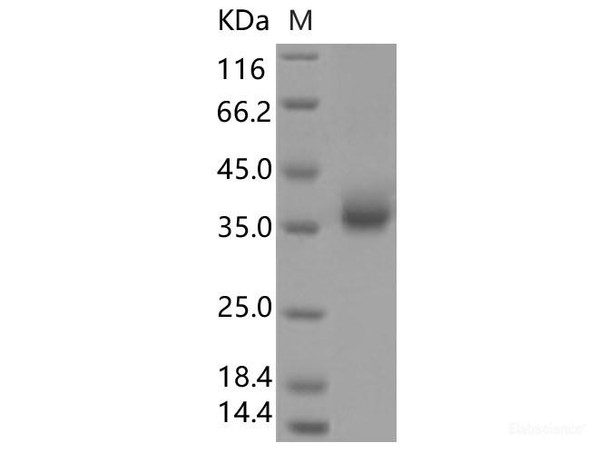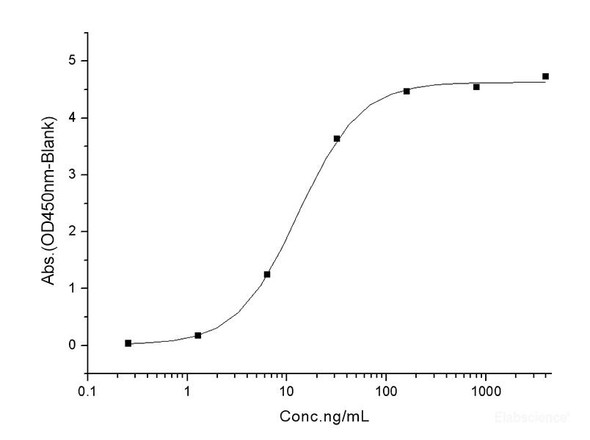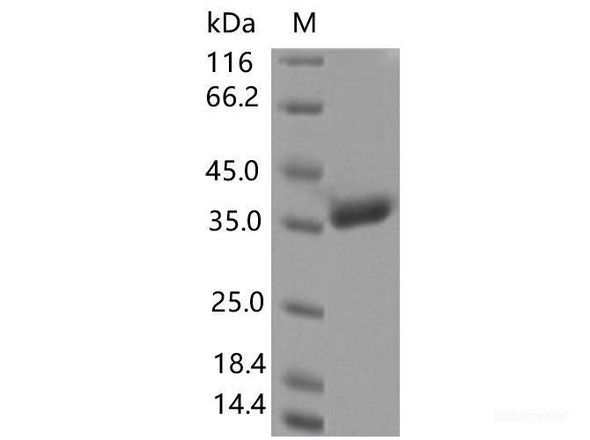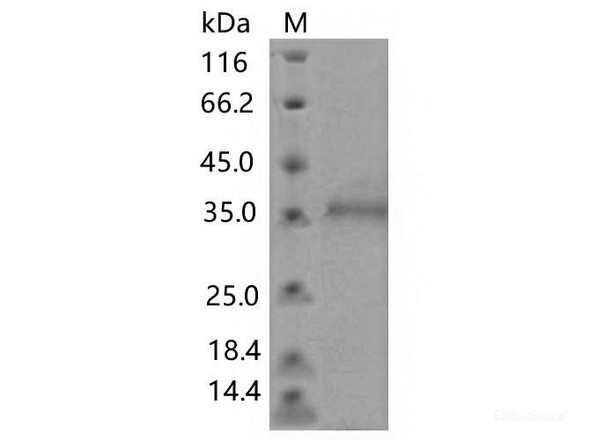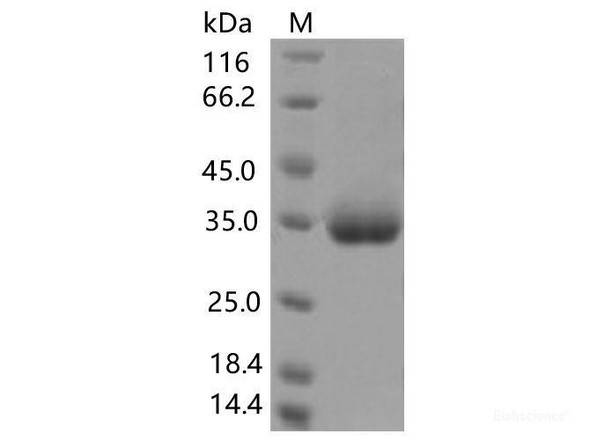| Sequence: | Arg319-Phe541(L452R) |
| Accession: | YP_009724390.1 |
| Storage: | Generally, lyophilized proteins are stable for up to 12 months when stored at -20 to -80°C. Reconstituted protein solution can be stored at 4-8°C for 2-7 days. Aliquots of reconstituted samples are stable at < -20°C for 3 months. |
| Shipping: | This product is provided as lyophilized powder which is shipped with ice packs. |
| Formulation: | Lyophilized from sterile PBS, pH 7.4. Normally 5 % - 8 % trehalose, mannitol and 0.01% Tween80 are added as protectants before lyophilization. Please refer to the specific buffer information in the printed manual. |
| Reconstitution: | Please refer to the printed manual for detailed information. |
| Background: | The spike (S) glycoprotein of coronaviruses contains protrusions that will only bind to certain receptors on the host cell. Known receptors bind S1 are ACE2, angiotensin-converting enzyme 2; DPP4, dipeptidyl peptidase-4; APN, aminopeptidase N; CEACAM, carcinoembryonic antigen-related cell adhesion molecule 1; Sia, sialic acid; O-ac Sia, O-acetylated sialic acid. The spike is essential for both host specificity and viral infectivity. The spike (S) glycoprotein of coronaviruses is known to be essential in the binding of the virus to the host cell at the advent of the infection process. It's been reported that SARS-CoV-2 (COVID-19 coronavirus, 2019-nCoV) can infect the human respiratory epithelial cells through interaction with the human ACE2 receptor. The spike protein is a large type I transmembrane protein containing two subunits, S1 and S2. S1 mainly contains a receptor binding domain (RBD), which is responsible for recognizing the cell surface receptor. S2 contains basic elements needed for the membrane fusion. The S protein plays key parts in the induction of neutralizing-antibody and T-cell responses, as well as protective immunity. The main functions for the Spike protein are summarized as: Mediate receptor binding and membrane fusion; Defines the range of the hosts and specificity of the virus; Main component to bind with the neutralizing antibody; Key target for vaccine design; Can be transmitted between different hosts through gene recombination or mutation of the receptor binding domain (RBD), leading to a higher mortality rate. |

